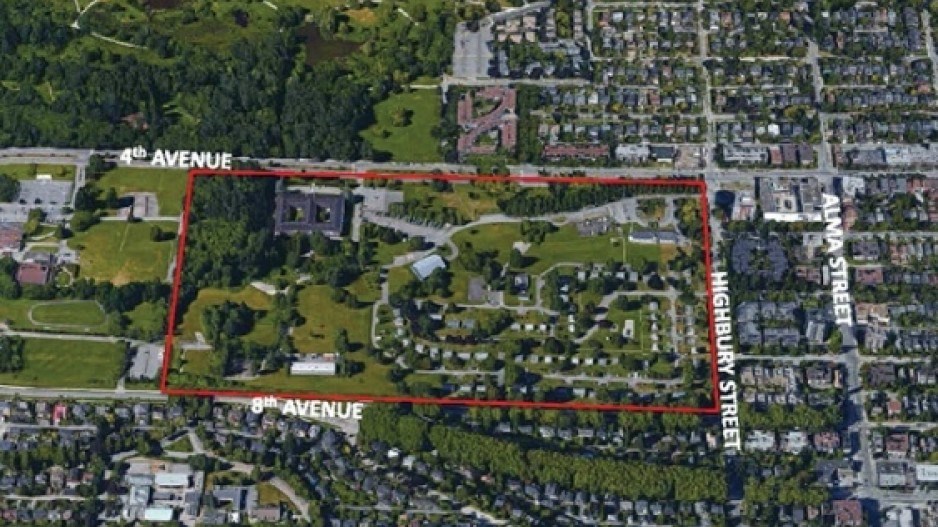Three First Nations are buying the province’s 38.4-acre Jericho Lands, but how much of the $480 million in the deal, announced April 8, is coming from provincial coffers versus the accounts or lenders of the Squamish, Tsleil-Waututh and Musqueam bands?
According to a 2004 Supreme Court of Canada ruling, governments must consult and accommodate First Nations when selling Crown land. That sometimes means payments or loans to help native bands buy the land.
Squamish Nation chief Ian Campbell would not say how much the accommodation payments are worth on the Jericho deal because of confidentiality.
“Aspects of the deposit and the property transfer tax and other soft costs to carry the land are coming out of accommodation moneys that were negotiated between the three nations and the province,” Campbell told Business in Vancouver.
Some of the funds will be used for deposits and to pay for part of the first parcel to be transferred in November. The rest, he said, will be used for the remaining parcel in November 2017.
The B.C. government said it plans to proactively release a redacted version of the contract and two different appraisals, but did not say when. It would also not disclose the value of the accommodation payments.
Citizens’ Services Ministry spokeswoman Tasha Schollen told Business in Vancouver to file a freedom of information request to get that agreement.
She said in an email that “the province defers to the First Nations should they choose to provide details on the terms of that [economic benefits] agreement.”
Jo-Ann Nahanee, a Squamish band member who has lobbied for chiefs and council financial transparency, said it was “definitely not” a good deal because of the secrecy.
She said members were not given details on financing at a March 23 meeting that she said was for information, not consultation, purposes.
“Why would we go in to purchase [fee-simple] land to pay taxes when, if we just wait for the treaty process, at the end we have reserve land if we win? The argument was if we win and how long will it take.”
Squamish, at Stage 2 of the six-step process, is the furthest of the three First Nations from a treaty. Musqueam’s 2005 framework agreement in Stage 3 is the most recent activity among the trio.
“Much of the details of the agreement as they’re being finalized continue to be held in confidential agreements, but it’s important for us to disclose to our members the strategy, the rationale, the feasibility, some of the risks that are associated with these types of acquisitions,” Campbell said.
Don’t expect changes immediately. Jericho Hill Centre, Jericho Hill Gym and Pool and West Point Grey Academy have leases until 2020. Rezoning could take up to three years.
When it comes time to develop, Campbell didn’t rule out Aquilini Investment Group’s involvement. Aquilini is a partner with the three First Nations in the July 2014 purchase of the BC Liquor Distribution Branch warehouse property and with Musqueam and Tsleil-Waututh in the March 2014 Willingdon lands purchase.
In a deal announced in October 2014, the three First Nations became a 50% partner with Canada Lands Co. (CLC) in the 52-acre federal Jericho Lands (which includes the Jericho Garrison), the former RCMP E Division headquarters and a lot near the West Vancouver fisheries lab in a deal worth $307.2 million.
The three First Nations got $86 million of the value of the new land holding company and $68 million in financing from CLC for their share. •




